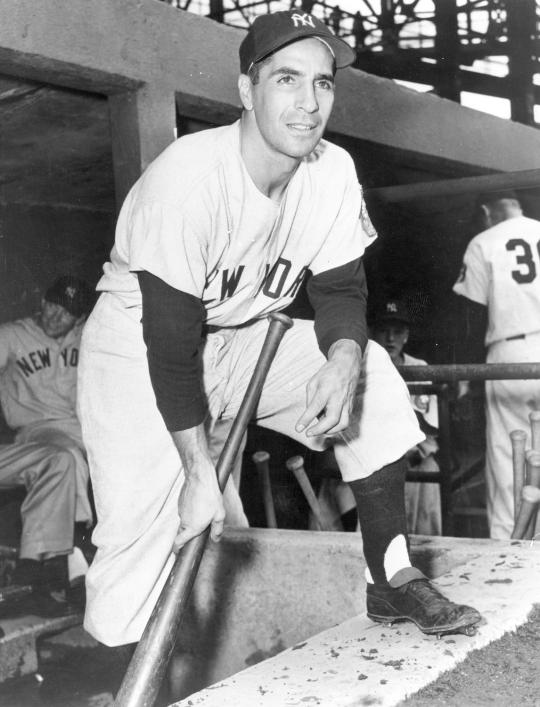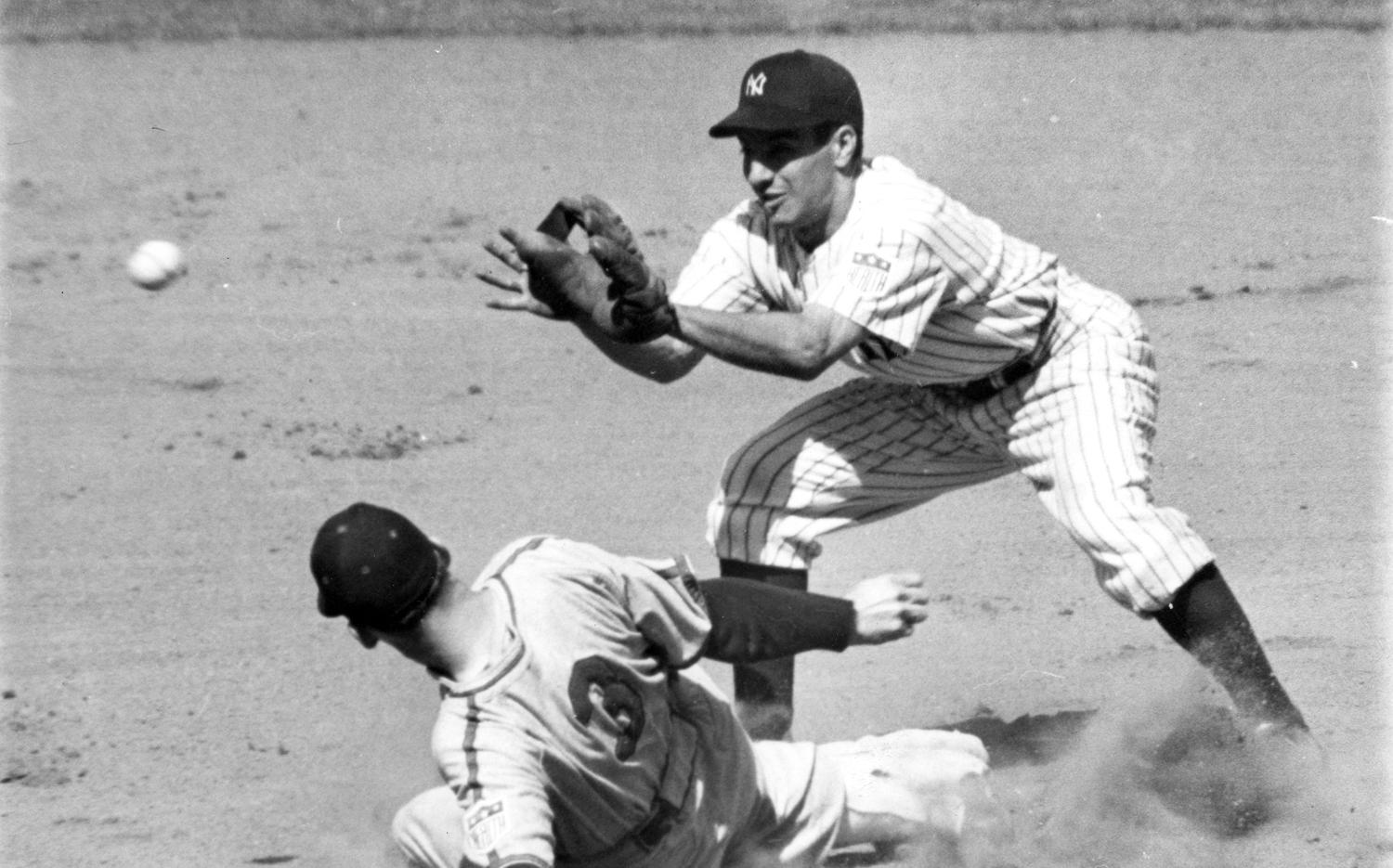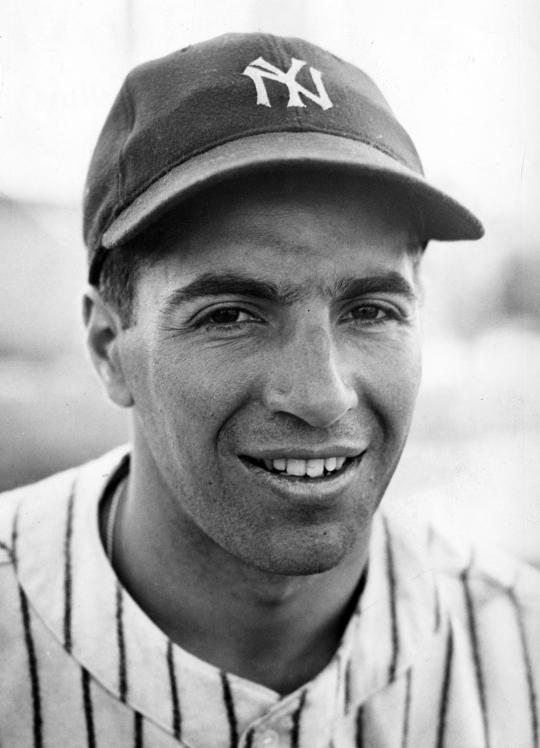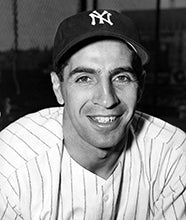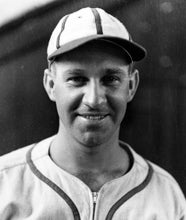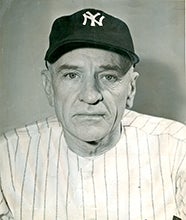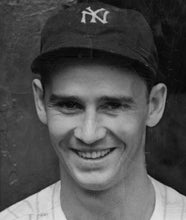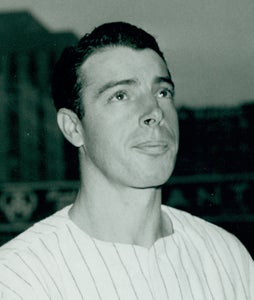- Home
- Our Stories
- Phil Rizzuto’s playing career ends
Phil Rizzuto’s playing career ends
Written off as too small to play in the major leagues, Phil Rizzuto overcame his diminutive stature to become one of the winningest shortstops in baseball history.
The New York Yankees released the smooth-fielding Rizzuto on Aug. 25, 1956, ending a Hall of Fame career that spanned 13 seasons. The move allowed the Yankees to acquire fellow future Hall of Famer Enos Slaughter for their championship run.
While he stood only 4-feet-11-inches tall as a teenager, Rizzuto was a star at Richmond Hills High School in Brooklyn, N.Y., and received attention from all three New York teams. But, he was turned down by the Brooklyn Dodgers and the New York Giants, who both saw him as too little.
“Kid, you’re too small,” future Hall of Fame manager Casey Stengel famously told Rizzuto at his tryout with the Dodgers.
The Yankees saw something they liked, however, and signed the young Rizzuto to a contract. By the time he reached the majors in 1941, Rizzuto had grown to 5-feet-6-inches and weighed 150 pounds.
In his rookie season, Rizzuto appeared in 133 games for the Yankees and hit .307.
“Scooter” became a fixture in the Bronx Bombers’ middle infield over the next decade, forming double-play combinations with the likes of Hall of Famer Joe Gordon, Billy Martin and others. Like many players, he served during World War II and missed three years as a result.
He was a seven-time World Champion with the Yankees, including titles in five straight seasons from 1949-1953.
Rizzuto’s best season was 1950, a year in which he won the American League MVP award. That season, Rizzuto batted .324 with 200 hits and 66 RBI. He also tallied an impressive .982 fielding percentage at shortstop, committing only 14 errors in 767 chances.
“The little guy in front of me, he made my job easy,” said Hall of Fame centerfielder Joe DiMaggio, who played behind Rizzuto from 1941-42 and 1946-51. “I didn’t have to pick up so many ground balls.”
Rizzuto never hit more than seven home runs in a season or drove in more than 68 runs. However, the five-time All-Star was an outstanding bunter and stole 149 bases in his time spent in the majors.
He compiled 1,588 hits and was a lifetime .273 hitter. In 1,647 games at shortstop, Rizzuto maintained a .968 fielding percentage.
Stengel, who had turned Rizzuto down in Brooklyn, called him “the greatest shortstop I have ever seen in my entire baseball career.”
Shortly after his release, Rizzuto became a broadcaster for the Yankees and held the position for four decades. As a broadcaster, Rizzuto was best known for his trademark phrase “Holy cow!”
He was elected to the National Baseball Hall of Fame in 1994.
Rizzuto died on Aug. 13, 2007.
Cody Eding was a public relations intern in the Hall of Fame’s Frank and Peggy Steele Internship Program for Youth Leadership Development

